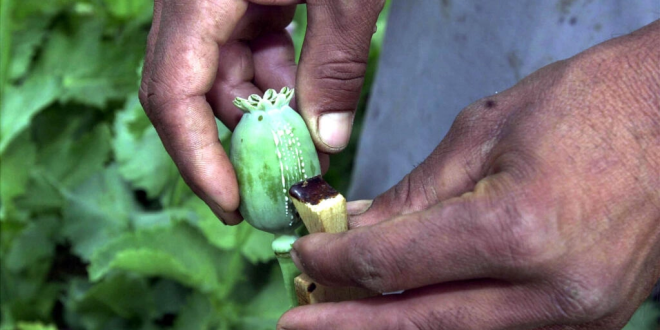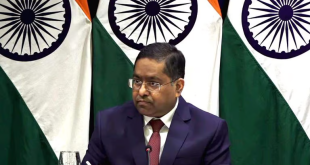AT
Kabul: The United Nations Office on Drugs and Crime (UNODC) has released its first report on the illegal opium trade since the Taliban’s return to power.
This organization has emphasized that drug cultivation has increased by 30 percent this year, despite the Taliban leadership order on banning the production, and sale of narcotics in Afghanistan.
But the Drug Enforcement Administration said this year’s harvest was largely exempt from the order, and farmers in Afghanistan must now decide whether to plant poppies for next year.
According to this office, the income of Afghan farmers from the sale of opium has increased from 425 million dollars in 2021 to 1.4 billion dollars in 2022.
Ghadeh Wali, the executive director of the United Nations Office on Narcotic Drugs, said “Afghan farmers are caught in the trap of the illegal economy, and it is necessary to first address the needs of the Afghan people by the international community in order to fight against narcotics.”
According to the findings of this organization affiliated to the United Nations, poppy cultivation in Afghanistan has increased by 32% compared to last year and has reached 233 thousand hectares.
According to the United Nations Office on Drugs and Crime, opium cultivation is still concentrated in the southwestern regions of the country, which accounts for 73% of the total opium cultivation area and the largest crop.
This organization notes that following the drought at the beginning of this year, the opium yield decreased from an average of 38.5 kg per hectare in 2021 to 26.7 kg per hectare this year, which resulted in the harvest of 6,200 tons of opium.
The UN Office on Drugs and Crime has said that the 2022 harvest could turn out to be 350-380 tons of export-quality heroin with a purity of 50-70 percent.
According to this office, Afghan opiates supply about 80% of opiate users in the world.
The Taliban leader has banned the cultivation of poppy and all drugs, but in order not to harm the farmers, he has excluded last year’s cultivation from this ban.
 Afghanistan Times
Afghanistan Times




